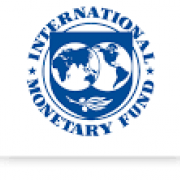
Mrs Maris Wanyera
Ag. Director Debt and Cash Management
Background
As part of the public financial management reforms geared towards improving on debt and cash management, the Ministry of Finance, Planning and Economic Development was restructured and the Directorate of Debt and Cash Policy (DDCP) was created with the mandate of providing an advisory role on the issuance and management of all government debt and cash in accordance with the Ministry’s economic policies. The need for an efficient debt and cash management frame work is obligated by PFM Act 2015 which requires maintenance of prudent and sustainable levels of public debt. Since the Directorate became operational, it is contribution has been significant accounting approximately 40% of the National Budget in its five years of operation.
The Directorate of Debt and Cash Policy (DDCP) consist of three departments:
1. Development Assistance and Regional Corporation (DARC): This is the front office and is primarily responsible for the mobilization of external resources to finance government programmes. The key functions include coordinating Development Partners, providing advice on external debt, coordinating bilateral and multilateral negotiations and signature of subsequent agreements and protocols, preparation of financing documentation and reports as well as ensuring effective and efficient utilization of external resources.
2. Debt Policy and Issuance Department (DPID): The Department is responsible for development of policies for management of public debt (both external and domestic) as well as contingent liabilities. The key functions include production of the Public Debt Management Framework (PDMF), Medium Term Debt Strategy (MTDS), Public Debt Statistical Bulletin, Domestic Debt Issuance Calendar, providing advice on securities market and debt instruments, as well as managing debt limits.
3. Cash Policy Department (CPD): The Department is primarily responsible for ensuring that there are sufficient cash resources available to meet Government expenditure requirements in a timely manner. The Treasury Single Account (TSA) was introduced as part of the Public Finance Management (PFM) reforms to improve Cash Management in line with (PFMA 2015).
Main Functions:
i.Oversee the government cash flow planning, coordination and investment of government funds, which includes developing policies and guidelines for cash management.
ii. Developing regular and timely cash flow reports and other information reporting on cash and debt positions for the top management.
iii.Formulating and supervising policies and procedures for all debt issuance and management.
iv.Create prudent investment policies and guidelines for the management of all government funds in consultation with the BOU.
v.Formulate policy initiatives to foster the development of the primary and secondary government markets.
vi. Prepare risk analyses regarding all contingent liabilities, which includes guarantees and all other types of obligations, which may arise in financing arrangements, such as in PPPs.
vii. Coordinate with other directorates to carry out the goal of developing cash management and issuance of domestic debt so as to endure effective and efficient management of government assets.
viii.Lead the issuance and management of all debt, which includes external and domestic debt.
ix.Recordation, monitoring and payment for all government debt.
Partners

